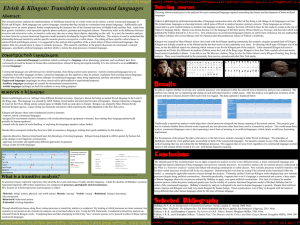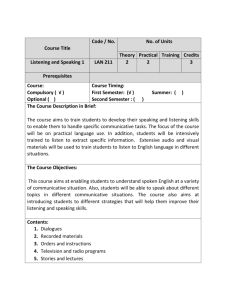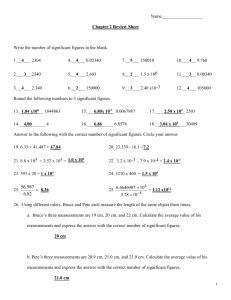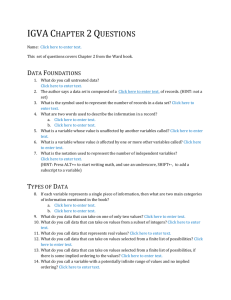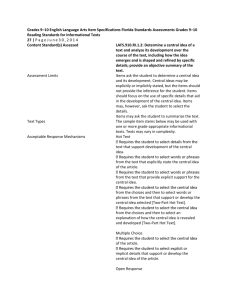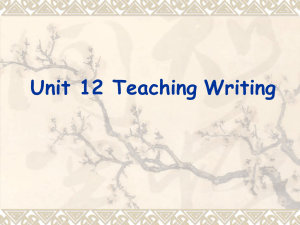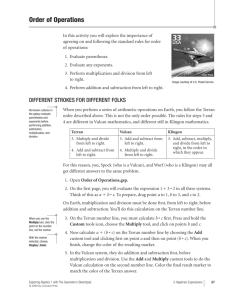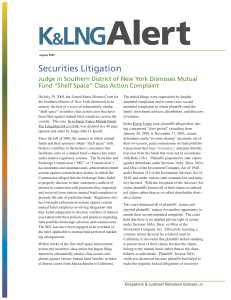Appendix ____ : Guide to writing course descriptions
advertisement
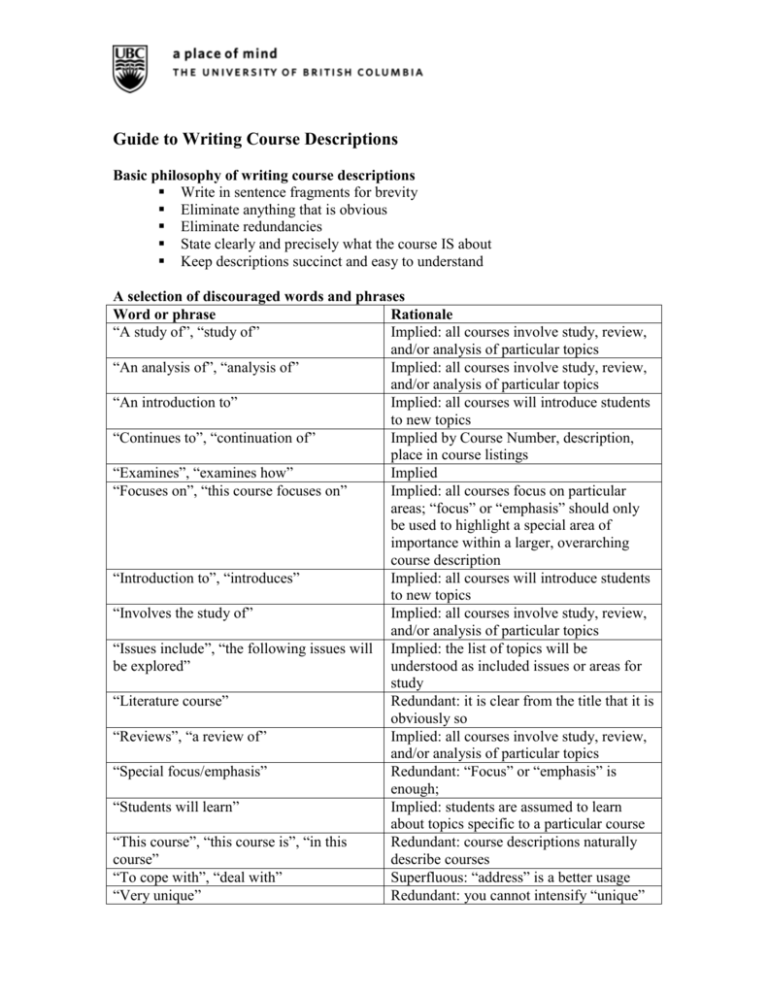
Guide to Writing Course Descriptions Basic philosophy of writing course descriptions Write in sentence fragments for brevity Eliminate anything that is obvious Eliminate redundancies State clearly and precisely what the course IS about Keep descriptions succinct and easy to understand A selection of discouraged words and phrases Word or phrase Rationale “A study of”, “study of” Implied: all courses involve study, review, and/or analysis of particular topics “An analysis of”, “analysis of” Implied: all courses involve study, review, and/or analysis of particular topics “An introduction to” Implied: all courses will introduce students to new topics “Continues to”, “continuation of” Implied by Course Number, description, place in course listings “Examines”, “examines how” Implied “Focuses on”, “this course focuses on” Implied: all courses focus on particular areas; “focus” or “emphasis” should only be used to highlight a special area of importance within a larger, overarching course description “Introduction to”, “introduces” Implied: all courses will introduce students to new topics “Involves the study of” Implied: all courses involve study, review, and/or analysis of particular topics “Issues include”, “the following issues will Implied: the list of topics will be be explored” understood as included issues or areas for study “Literature course” Redundant: it is clear from the title that it is obviously so “Reviews”, “a review of” Implied: all courses involve study, review, and/or analysis of particular topics “Special focus/emphasis” Redundant: “Focus” or “emphasis” is enough; “Students will learn” Implied: students are assumed to learn about topics specific to a particular course “This course”, “this course is”, “in this Redundant: course descriptions naturally course” describe courses “To cope with”, “deal with” Superfluous: “address” is a better usage “Very unique” Redundant: you cannot intensify “unique” 1. Eliminate superfluous words e.g., “KLNG 275 (3) Readings in Klingon Narrative Introduces students to a variety of narrative forms…” It is implied that students will be taking the course. “a variety of” is not necessary, as “forms” implies more than one narrative type. Recommended revision: either “Introduction to Narrative Forms…” or delete the superfluous phrase and use entire course description to focus on specific elements of the course. e.g., “KLNG 317 (3) Introduction to Popular Klingon Narrative Introduction to popular Klingon literary genres…” It is already clear from the course title that popular narratives are studied in an introductory manner. “Narrative” in title is more specific that “literary genres”, making the second descriptor unnecessary. Recommended revision: delete the superfluous phrase and use entire course description to focus on specific elements of the course. e.g., “KLNG 144 (3) Backgrounds to Classical Klingon Texts Survey course to acquaint students with Classical Klingon texts that have influenced Western literature. Students will study Classical Klingon texts…” It is already clear from the course title that Classical Klingon texts are involved. It is already implied that students will be taking the course. Recommended revision: “Survey, focussing on Classical Klingon texts that have influenced Western literature, including…. [lists examples of texts]. e.g., “KLNG 115 (6) Intensive Basic Klingon II Continues to develop students’ communicative competence in listening, speaking, reading and writing in spoken Klingon and modern written Klingon, with special emphasis on reading and writing.” A continuing course will “continue” to develop whatever skill is on offer; no need to state this. 2. Use economical language; eliminate ambiguous language e.g., “Develops students’ communicative competence in listening, speaking, reading, and writing” “Skills” is preferable to “communicative competence in”. Recommended revision: “Develops listening, speaking, reading, and writing skills”. e.g., “Consult course listings for current year's offerings” Statement should specify where such listings can be found. Recommended revision: “Consult department for current year’s offerings”. e.g., “KLNG 321 (3) Business Klingon I An advanced Klingon language course: Practical business-focussed reading, writing, and presentation will be organised to build up students’ comprehensive abilities for deal with business interactions and documents.” Problems with tense, prepositions, awkward verbiage. Unnecessarily complicated sentence structure. More redundancy and stating of the obvious. Recommended revision: “Practical business-focussed reading, writing, and presentation skills addressing business interactions and documents.” e.g., “KLNG 401 (3) Media Klingon Focuses on further developing students’ abilities to read and understand the Klingon language used in the context of media primarily through newspapers as well as radio/TV broadcasts and internet news. Problems with prepositions, verbiage. Serial comma is required. Recommended revision: “Reading and understanding Klingon as used in newspapers, radio/TV, and the internet news.” 3. Use transparent and sensible subject groupings and descriptions e.g., “KLNG 115 (6) Intensive Basic Klingon II Develops students’ communicative competence in listening, speaking, reading and writing in spoken Klingon and modern written Klingon, with special emphasis on reading and writing.” Sort communication skills by medium (i.e., one listens to and speaks a spoken language; one reads and writes a written one). Listening, speaking, etc., are communication skills. Serial comma is required. Recommended revision: “Skills in listening to and speaking Klingon, reading and writing modern written Klingon; emphasis on reading and writing”.

